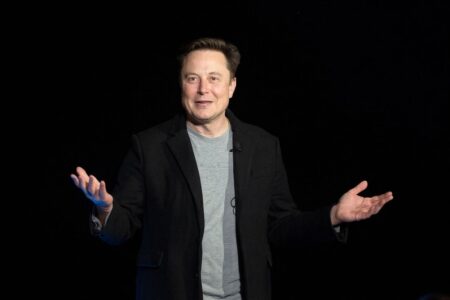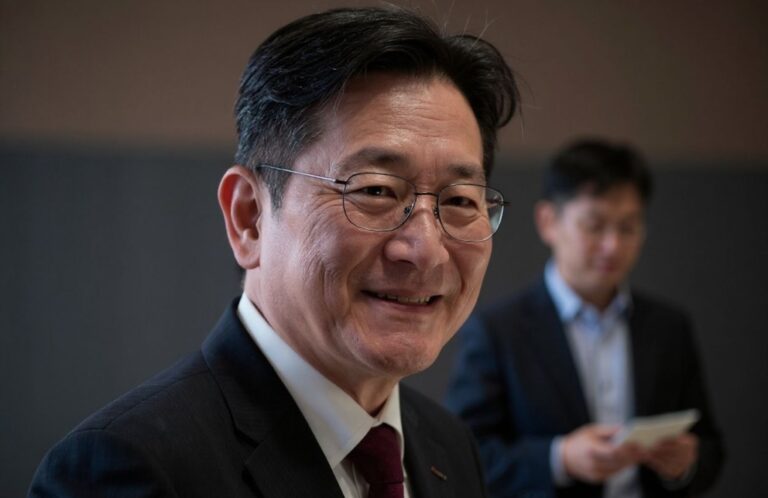
What do companies like Samsung, Hyundai and LG have in common?
These “chaebols” are led by Korean CEOs.
If you are confused by this term, here’s an explanation by Sangin Park, a Professor of Economics at Seoul National University:
“Large business groups that make up a major portion of a country’s economy and that are owned by a single family.”
So here’s one trait that led to the success of Korean CEOs — they were born into it.
Koo Kwang-mo, for example, is the chairman and chief executive of LG, one of South Korea’s top five conglomerates (a company that owns several smaller businesses whose products or services are usually very different).
He inherited the shares of his late father and former LG chairman, Koo Bon-Moo, after passing in May 2018.
If you’re born into a rich family, with a great job (or even directorship) and comfortable life lined up for you, do you still need a degree?
Do you still need to study abroad to be successful in South Korea?
To answer this, we first need to take a look at how these conglomerates came about.
The rise of “chaebols” in South Korea
In “The Untouchable Chaebols of South Korea” documentary, Park explains that Korea did not have a capital market in the 60s and 70s.
Businesses needed funds to invest, but they couldn’t take out loans from abroad due to their low credibility.
“So the government intervened and brought in funds from abroad and distributed to corporations,” the economics professor shares.
These chaebols started to form when South Korea experienced rapid industrialisation in the 1970s. At that time, the Korean government distributed specific industries to each “chaebol.”
“Electronics was assigned to Samsung and LG. Motor vehicles were assigned to Hyundai,” Park says.
These conglomerates grew rapidly.
For 30 years, South Korea harvested “unprecedented success“, according to data from the World Bank.
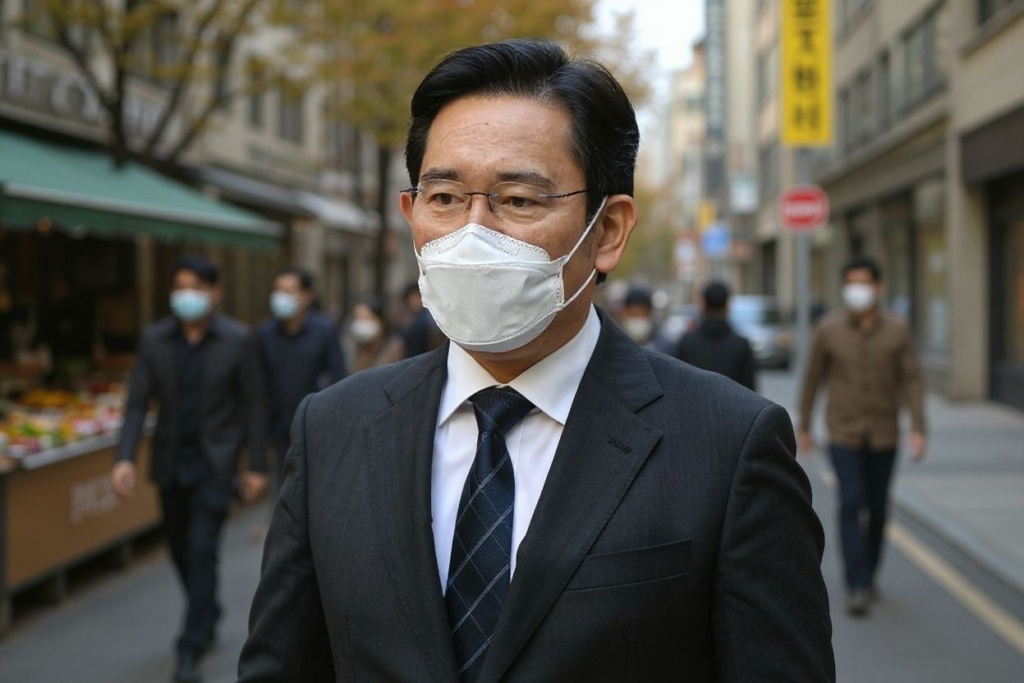 Samsung Electronics' new Chairman Lee Jae-yong studied at Keio University in Tokyo for his master's degree.
Samsung Electronics' new Chairman Lee Jae-yong studied at Keio University in Tokyo for his master's degree.
Do you need to study abroad to become a successful Korean CEO?
Studying abroad is an indicator of status and wealth in South Korea, so many “chaebol” scions tend to attend uni outside the country.
Lee Jae-yong, brother of Lee Boo-jin (the eldest daughter of the late Lee Kun-hee, the former chairman of Samsung Electronics), studied at Keio University in Tokyo for his master’s degree.
HIs sister Lee Seo-hyun obtained her bachelor’s degree at Parsons School of Design in New York.
On the other hand, Lee Boo-jin decided to stay in Korea and attend Yonsei University for her bachelor’s degree, majoring in children’s studies.
Today, she is the CEO of Hotel Shilla, which is a subsidiary of Samsung.
Surprisingly, the number of South Koreans studying abroad in 2020 decreased by around 41% compared to 2018, according to research by the Korean Ministry of Foreign Affairs.
Data from Open Doors showed that there were 39,491 students from South Korea studying in the US in the 2020/21 academic year. Just a year before, 49,809 South Koreans were studying in the country.
Viva Republica head Lee Seung-gun is taking his finance superapp Toss to its next stage with a big push in Southeast Asia and a blockbuster funding round in the works—and that’s just the beginning. https://t.co/sFj6f7bQQU
— Forbes (@Forbes) April 22, 2022
Who are the most successful Korean CEOs?
Apart from CEOs at family-owned conglomerates in Korea, there are also modest start-up founders who overcome the trials and tribulations of setting up their own businesses.
Let’s take a look at their story and learn what they did to achieve success:
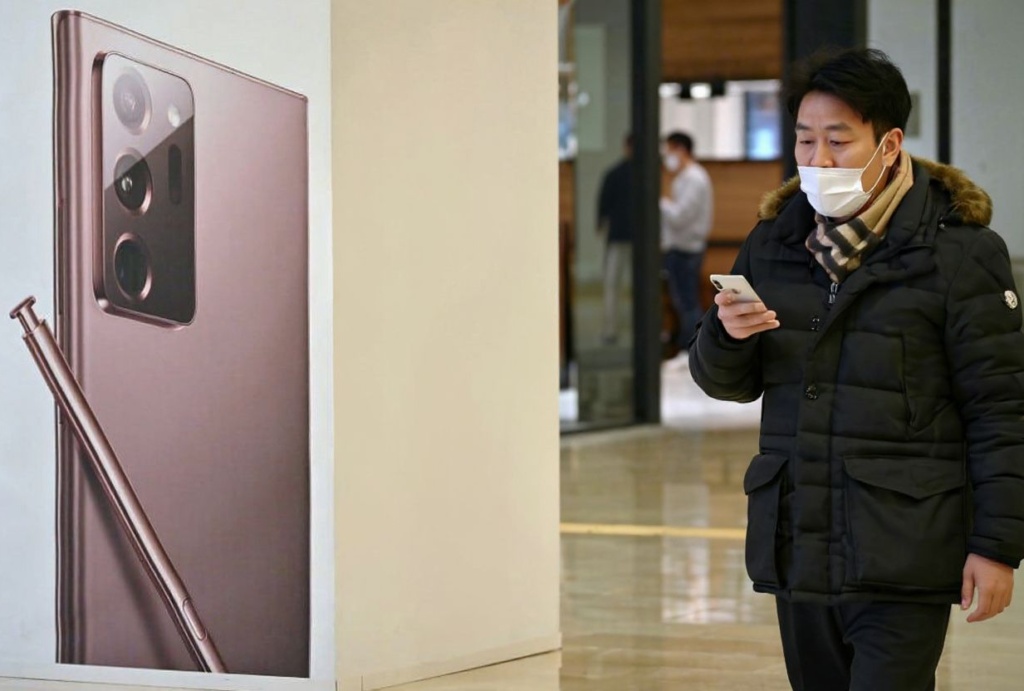 Lee Seung-gun became one of the most successful Korean CEOs today by rebelling against his parents.
Lee Seung-gun became one of the most successful Korean CEOs today by rebelling against his parents.
1. Lee Seung-gun
Viva Republica operates the Korean finance app Toss, which lets you connect your accounts and cards, and see your balance, loan, investments and monthly and daily card spending.
In June 2021, Forbes reported that Viva Republica raised more than US$400 million in a financing round that valued the company at over US$7 billion.
Before starting Viva Republica in 2013, Lee was a dentist at a hospital affiliated with the Samsung Group.
When he told his parents that he wanted to become an entrepreneur, they were furious.
While the uncertainty of entrepreneurship can be a difficult pill for parents to swallow, it can be even harder in South Korea, where conservative values persist.
“It wasn’t pretty,” the CEO of Viva Republica shared in an interview with CNBC.
“It really tore my parents down. In Asia, in general, there’s this expectation from family and society that you’ll do something traditional like be a doctor or a dentist. But I was never that guy.”
Eight start-up failures later — which ranged from social media networks to mobile apps — he found success in Toss.
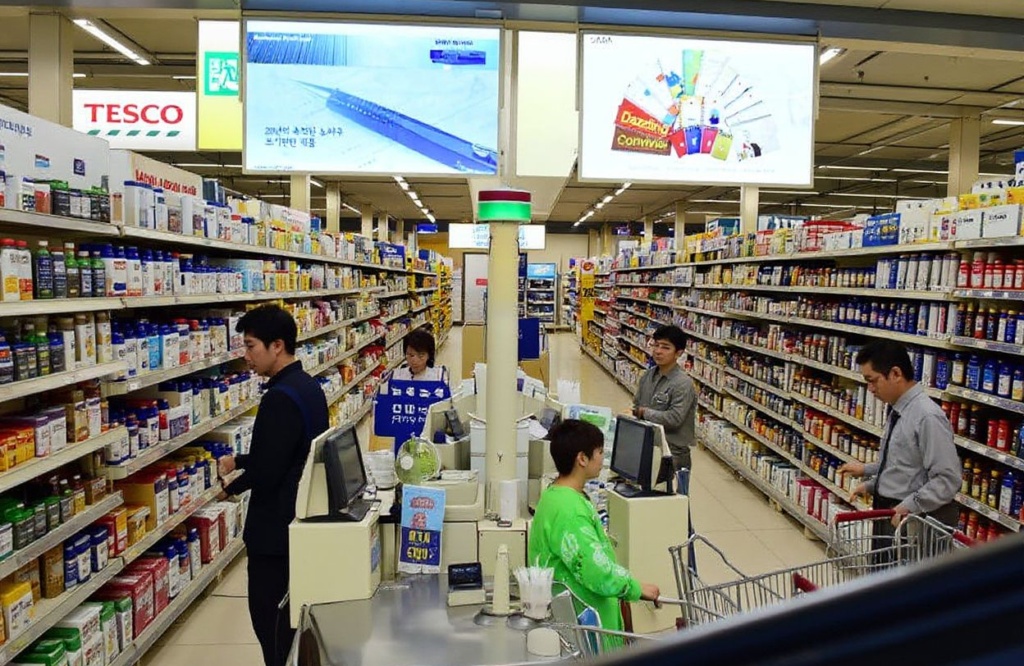 Korean CEOs are behind some of the multi-million dollar apps today, such as Market Kurly.
Korean CEOs are behind some of the multi-million dollar apps today, such as Market Kurly.
2. Sophie Kim
Market Kurly is South Korea’s first billion-dollar online grocery app, according to CNA Luxury.
The app is known for its dawn delivery service — Morning Star — that delivers fruits, vegetables, and other premium fresh foods by seven o’clock the next morning for orders made before 11 p.m.
The company also has a line of gourmet ready-to-cook dishes.
Sophie Kim grew up in Ulsan — approximately four hours from Seoul — and studied political economy in the US.
Upon graduation, she got a job at Goldman Sachs and was formerly a consultant with McKinsey & Company.
In 2011, she moved to Singapore to work with Temasek Holdings, the country’s state-owned investment company.
Her love for food kickstarted her entrepreneurship journey. The self-professed foodie and CEO told CNA Luxury: “Starting a company was not a natural thing for me, but my passion for food was. I grew up in a family where food was important.”
 (From left to right) So-Young Ko, wearing Gucci, guest, LACMA Art + Film Gala Co-Chair Eva Chow, wearing Gucci, and Lee Boo-Jin attend the 2022 LACMA ART+FILM GALA Presented By Gucci at Los Angeles County Museum of Art on November 05, 2022 in Los Angeles, California.
(From left to right) So-Young Ko, wearing Gucci, guest, LACMA Art + Film Gala Co-Chair Eva Chow, wearing Gucci, and Lee Boo-Jin attend the 2022 LACMA ART+FILM GALA Presented By Gucci at Los Angeles County Museum of Art on November 05, 2022 in Los Angeles, California.
3. Lee Boo-jin
When you’re connected to someone who was the chairman of the largest conglomerate in South Korea, it’s hard not to get recognised.
As the eldest daughter of Lee Kun-hee, the mother of one has appeared in Fortune’s “Most Powerful Women of Asia-Pacific” list in 2015, Forbes’ “Korea’s 50 Richest” list in 2020 and its “Billionaires” list in 2021.
Despite these achievements, Lee has a kind heart.
In 2014, a taxi crashed into the revolving doors of Hotel Shilla, injuring a hotel staff member and a hotel guest.
The driver had to pay almost 40 million won (US$37,000), according to the South China Morning Post.
Instead of being angry, Lee was worried and requested her company’s vice presidents to check on the driver.
They discovered that he was living in a one-room flat and caring for his sick wife, who had suffered from a stroke.
Upon learning this, Lee dropped the charges and sent gifts of beef and cake instead.
4. Su-yong Joh
He is the former CEO of Kakao Corp, one of South Korea’s most disruptive — and successful — tech companies.
Joh is a rather unusual hire by the tech CEO standards, mainly because of his background in design, branding, and publishing.
Before joining Kakao in 2016, he ran his agency, JOH & Company, which provided a range of creative direction services to various South Korean hotel and lifestyle brands.
He is also the publisher of Magazine B, an independent and ad-free magazine that features a single brand in each issue, and Magazine F, a food documentary magazine.
What you might not know about this former Korean CEO is that he loves reading books.
Some of his recommendations include “The Second Mountain” by David Brooks.
“This book gives one the courage to find joy in life through relationships, taking one beyond the trappings of success,” Joh shares.
“It may sound like an ideological story but it is a meaningful story that simply suggests realistic concerns and guidance.”
 Before he was one of the many Korean CEOs making waves, Daniel Kang was a singer, songwriter, actor and model.
Before he was one of the many Korean CEOs making waves, Daniel Kang was a singer, songwriter, actor and model.
5. Daniel Kang
What’s it like to be the youngest CEO in the Korean entertainment industry?
According to Kang, it took some time for him to adjust to his new position.
“At first, the title [of] CEO was awkward. I especially can’t get used to it when I approve important contracts and have to sign as both the CEO and the model at the same time,” he told the local media.
The singer-songwriter, actor, and businessman is the CEO of Konnect Entertainment and KD Corporation Ltd.
6. Bom Kim
He founded South Korean e-commerce giant Coupang, which went public on the New York Stock Exchange in March 2021.
In November 2018, Forbes reported that the company raised US$2 billion from Softbank’s Vision Fund at a US$9 billion valuation.
You wouldn’t think that he was a dropout of Harvard’s prestigious MBA programme, but Kim was determined to make it on his own. Six months into the programme, he decided to drop out.
“I had a belief when I was in grad school that I had a very short window to really make something that had an impact,” he told CNBC Make It.
When he started the company in Seoul in 2010, Coupang was a Groupon-style daily deals business.
It quickly shifted into an eBay-inspired third-party online marketplace.
Within three years, the platform crossed US$1 billion in sales and had turned profitable for the first time, according to Kim.









